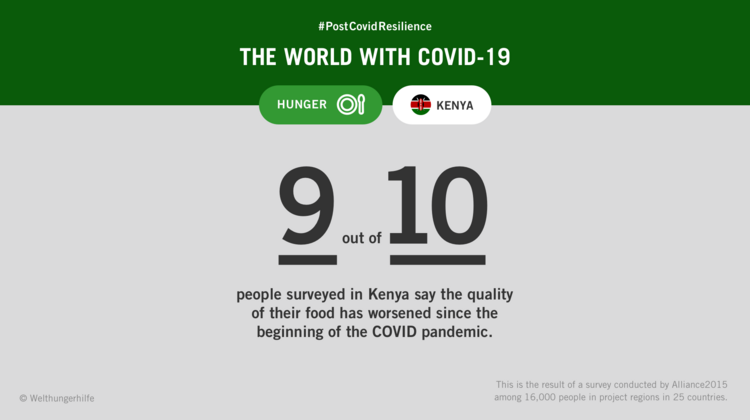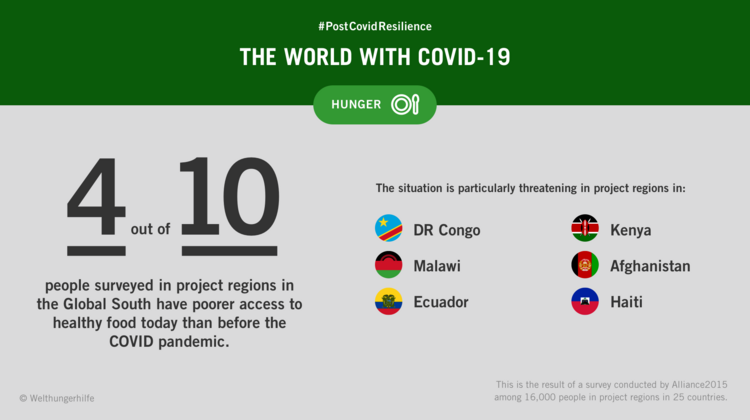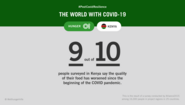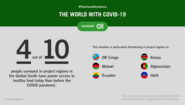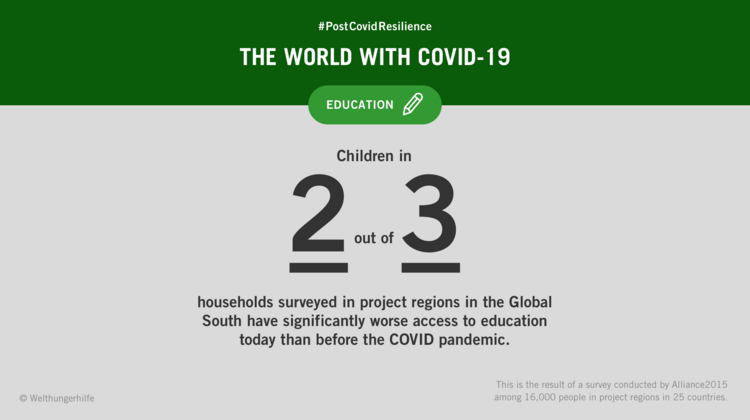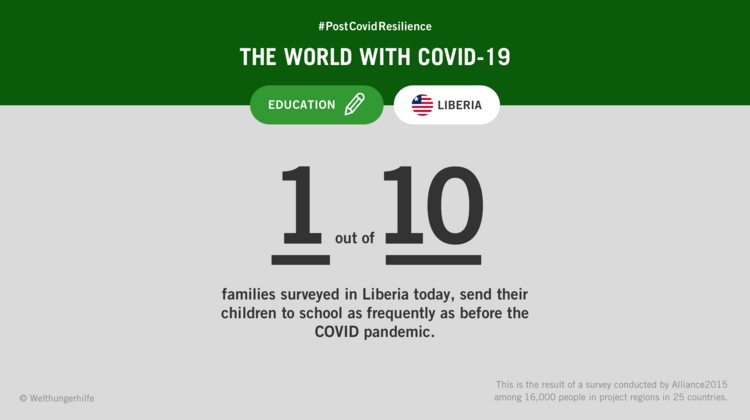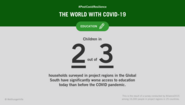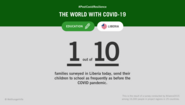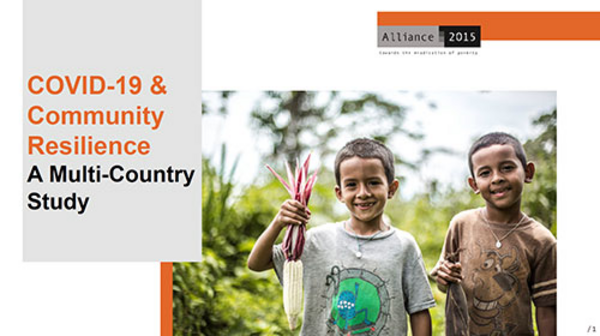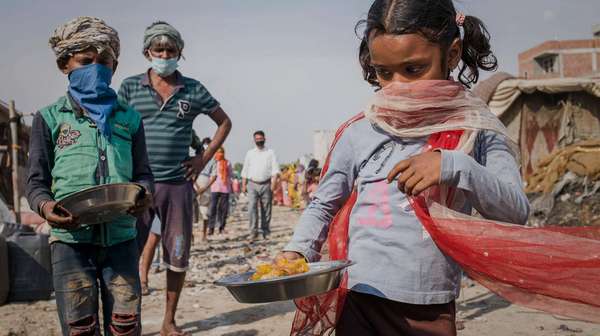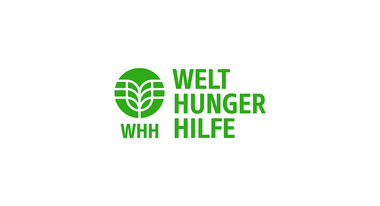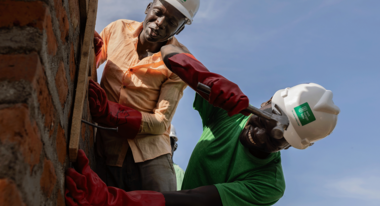A shocking 46% of women and 37% of men reported that they and their families were consuming less food of poorer quality.
Survey: COVID-19 exacerbates hunger
The results of an Alliance2015 survey on the impact of the COVID-19 pandemic of the Global South are sobering: Nine out of ten respondents are poorer as a result of the coronavirus crisis, and four out of ten have less access to food than before. The progress made in development over recent decades is in jeopardy.
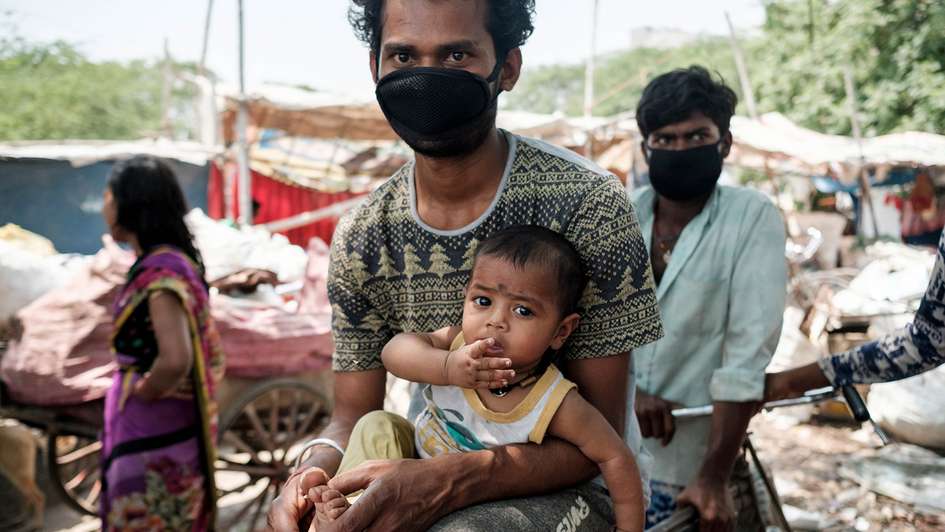
A survey conducted by Alliance2015 in 25 Global South countries confirms fears: Nearly one in two people surveyed say the quality of their food has declined significantly. Forty-two percent say the quantity of food has also declined – they have less to eat today than before the COVID-19 outbreak. This includes families who were already unable to feed themselves adequately before the pandemic.
Hunger is increasing due to the pandemic
The situation is particularly dramatic in sub-Saharan Africa. In Kenya, nine out of ten people surveyed say the quality of their food is now worse. In projects in the Democratic Republic of Congo, over 80% say there is less food available. The impact of the pandemic on nutrition is also clearly noticeable in projects in Ecuador, Haiti and Afghanistan.
Many people are slipping into absolute poverty due to the coronavirus crisis
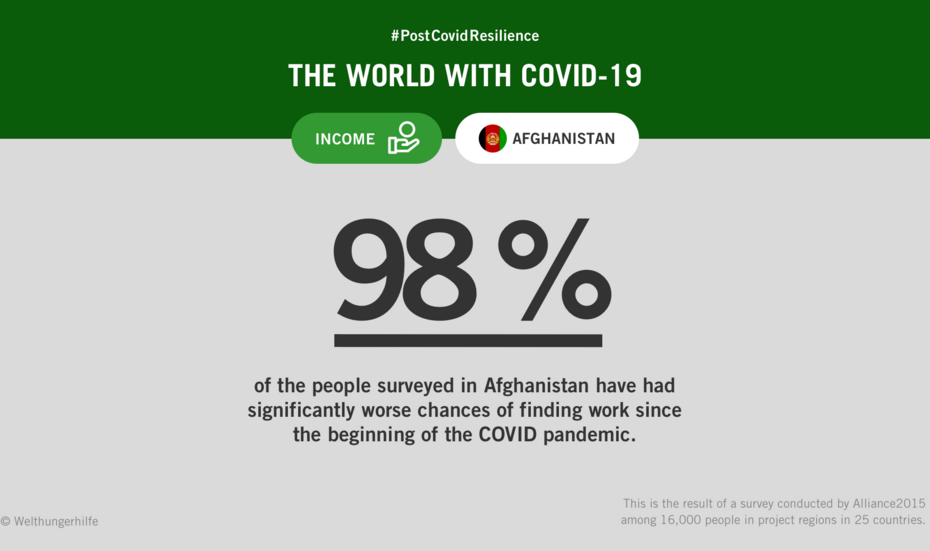
Ninety percent of respondents earn less money today than before the pandemic. Day labourers are the most affected, as there are simply no job opportunities, or their wages are not being paid. But traders and farmers also reported that their incomes have fallen – because customers were staying away, or people can no longer afford the products.
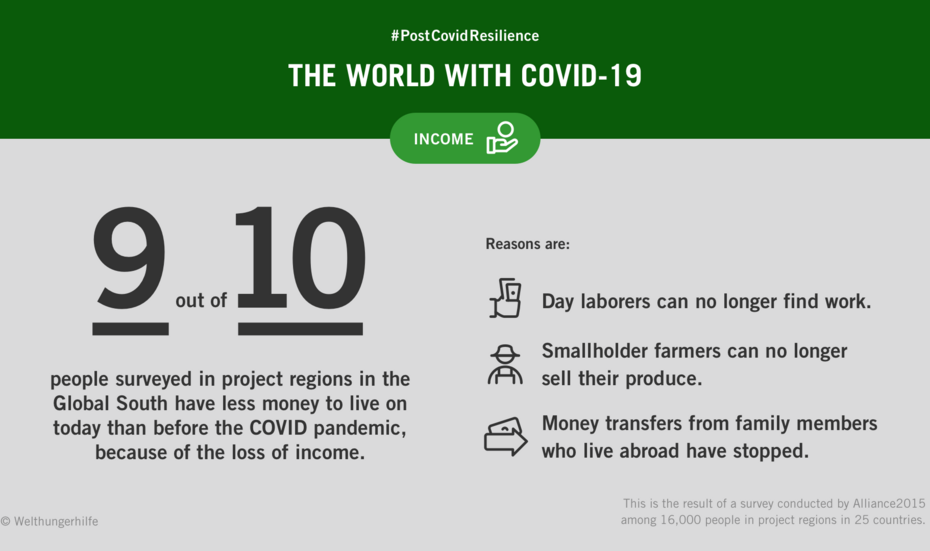
The study: COVID-19 & Community Resilience
- 16,000 respondents from 25 countries
- Survey period: October to December 2020
- Survey commissioned by Welthungerhilfe and seven other Alliance2015 aid organisations (Alliance of European Aid Organisations)
The loss of income is having devastating consequences, because these shortfalls are not compensated for by social security in many countries of the Global South. For poorer people, the loss of work means that they can no longer feed themselves and their families – and are therefore going hungry.
Children have poorer access to education
Education is a gateway out of poverty – but this prospect of a better future is in jeopardy for many children of the Global South: in two out of three families who responded to the survey, children have significantly poorer access to education due to the COVID-19 pandemic. In Liberia, for example, only one in ten families surveyed can send their children to school as regularly as before the outbreak of coronavirus. Combined with the desperate financial situation in which many families currently find themselves, the risk of child labour and forced marriage is also increasing.
The COVID-19 pandemic presents enormous challenges
In addition, there is the psychological burden of the coronavirus crisis: 80% of the respondents say they are more worried than before, 78% of women stated they are feeling sadder now.
With the challenges of dealing with the COVID-19 pandemic, many are reaching their limits: While the majority of respondents are well informed about COVID protective measures, more than a third cannot comply with hygiene measures because they do not have access to clean water, soap and masks.
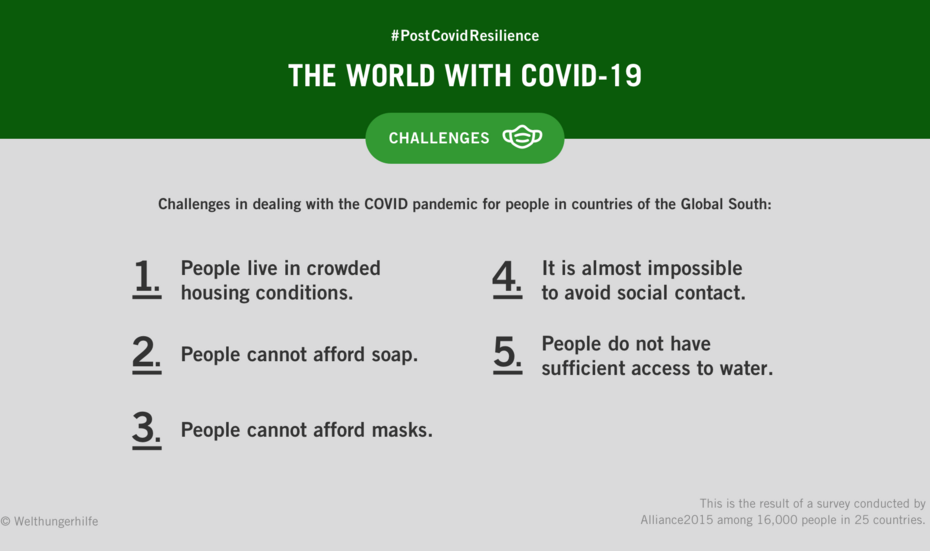
Almost a quarter of respondents say they cannot keep their distance from other people because of their living conditions in refugee camps, slums, or very cramped and small housing. In addition, crowded places like markets cannot be avoided.
Providing assistance – hygiene and food
How we help people currently suffering from hunger as a result of the pandemic.
Welthungerhilfe is supporting people in Global South countries to protect themselves and others from coronavirus: We are installing hygiene facilities in public places and securing the supply of running water, soap, masks and disinfectants. Among other things, we distribute food and cash to households that are already struggling to adequately feed themselves.
The Alliance2015 survey confirms: The impact of the COVID-19 pandemic is having dramatic economic and social consequences for the people of the Global South. Without social security, millions of people could slip into absolute poverty and no longer be able to feed themselves and their families. We support the people who are hit hardest by the coronavirus crisis. Help us in our mission – every euro donated contributes to essential assistance across the globe.
Support people worldwide during the coronavirus crisis!





